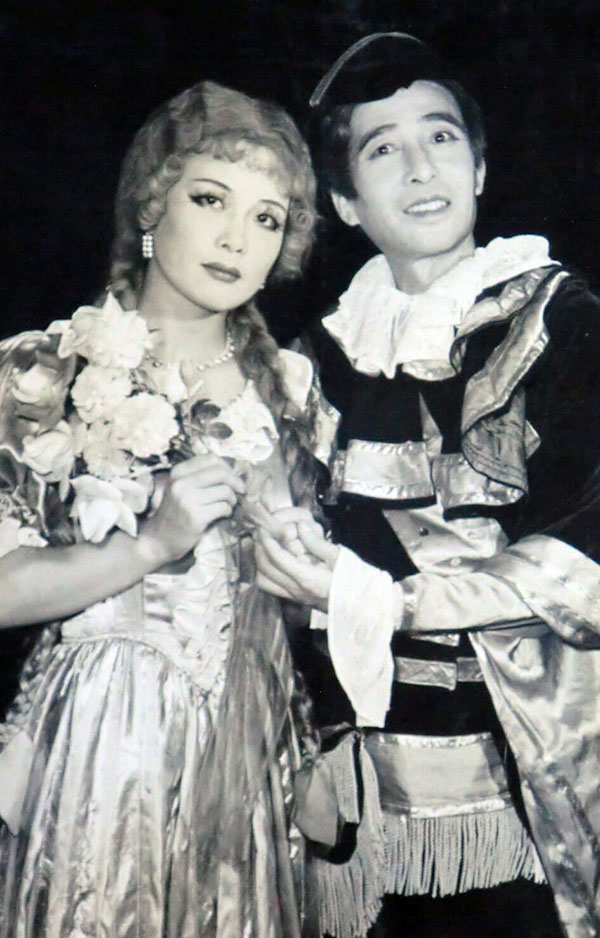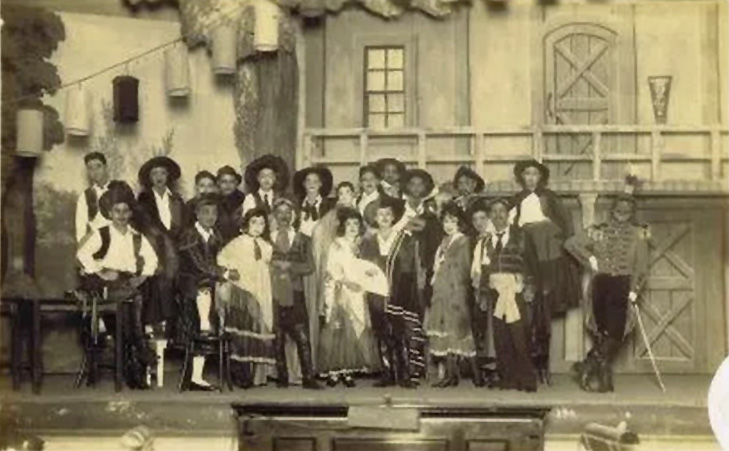Rikizo Taya


Rikizo Taya: to younger generations such as Mr. Tanaka, all they remember about him is a quite wobbling voice (as he was over 80 years old) singing in many different places, such as a hospital for the aged. Every morning, he would practice his vocalization on the side of a pond in Asakusa, an old town in Tokyo. He surely was one of the prominent of the so-called 'Asakusa Opera' (a boom of opera in Japan in the 1920's, however a quite short-lived boom). I would like to thank Mr. K. Tanaka for the biographical information.
Orphaned at 10 years old, Taya had to make a living, and joined a band that played at the posh Mitsukoshi department store.
He first tried himself as an instrumentalist (playing the natural horn), then his voice was discovered. He later studied
voice with the Italian conductor Vittorio Rossi, who worked in Tokyo at the time, and made his opera debut at the Royal
Theatre in Tokyo-Akasaka in 1917, under Rossi's baton. He was very popular among Japanese operagoers in the 1920s and
1930s, appearing with various opera companies in Tokyo. He also sang a lot of light and pop music. His success was
astonishing: he made, for example, "Hab' ich nur deine Liebe" from Suppé's Boccaccio so popular that some
people in Japan consider it today an "old Japanese song"!
Taya was wounded during the bombing of Tokyo in 1945, but succeeded, after laborious rehabilitation, to make a comeback in
1949 in La Grande-Duchesse de Gerolstein (which was very successful in Japan as Bun Taisho, i. e. General
Boum).
Reference 1,
reference 2 |